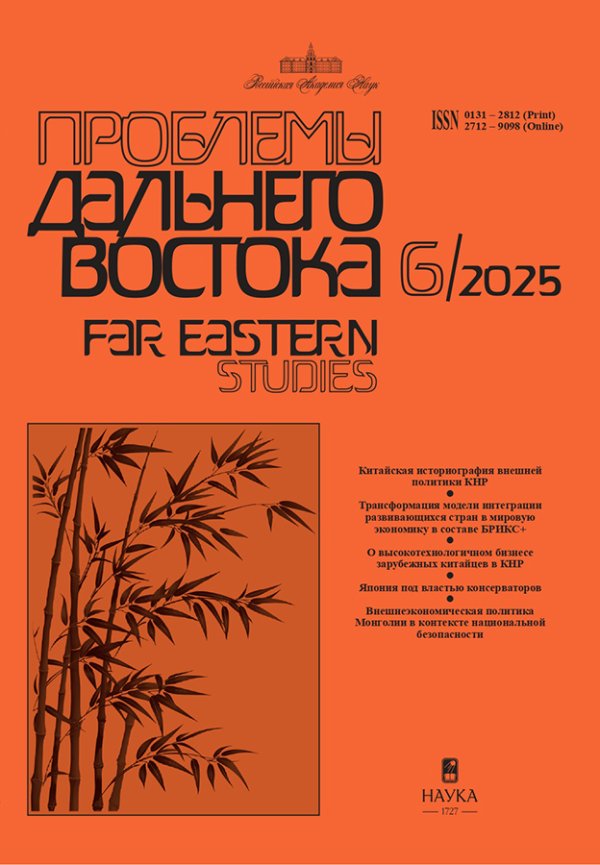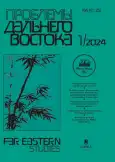Всеобъемлющее региональное экономическое партнерство — крупнейшее интеграционное объединение в Азии и мире
- Авторы: Акимов А.В1
-
Учреждения:
- Институт востоко- ведения РАН
- Выпуск: № 1 (2024)
- Страницы: 70-83
- Раздел: Экономика
- URL: https://journal-vniispk.ru/0131-2812/article/view/259524
- DOI: https://doi.org/10.31857/S0131281224010069
- ID: 259524
Полный текст
Аннотация
Всеобъемлющее региональное экономическое партнерство (ВРЭП) представляет собой зону свободной торговли с перспективами углубления экономической интеграции. В него вошли КНР, Япония, Республика Корея (РК), все страны АСЕАН, Австралия и Новая Зеландия. Переговоры по созданию ВРЭП начались в 2012 г., соглашение о создании ВРЭП подписано в 2020 г., функционирование организации началось 1 января 2022 г. ВРЭП — крупнейшая в мире по уровню ВВП зона свободной торговли с населением в 2,2 млрд человек. ВРЭП опирается на следующие ключевые принципы региональной интеграции: торговля и инвестиции, основанные на правилах; доступ к рынкам стран-участниц; экономическое сотрудничество; центральное положение АСЕАН; изменение условий и оперативность реагирования, обеспечиваемые его статусом гибкого соглашения. Во ВРЭП на 20 лет сохраняются импортные тарифы, хотя их снижение запланировано. Товарные позиции в тарифах прописаны c большой детализацией для избирательного регулирования таможенной политики. Страны-члены открыты для торговли продукцией высоких технологий (электроника и авиационная техника), не облагают пошлинами импорт тех видов сырья, топлива и продовольствия, которых нет в стране. Наиболее защищаемыми статьями импорта являются товары, обеспечивающие продовольственную безопасность, а также избирательно те отрасли обрабатывающей промышленности, которые обеспечивают внутреннюю безопасность населения и международную конкурентоспособность (автомобильная техника). Из 15 стран-членов на 5 приходится более 90 % суммарного ВВП ВРЭП: КНР — 61 %, Япония — 14 %, РК — 6 %, Австралия — 6 %, Индонезия — 5 %. ВРЭП — первый опыт экономической интеграции столь разных по уровню экономики и технологии стран. Перспективы ВРЭП связаны с большими размерами его экономики и населения и догоняющим развитием отстающих стран-членов. Источники рисков — неравенство стран и конкурентные интеграционные проекты, организуемые США.
Об авторах
А. В Акимов
Институт востоко- ведения РАН
Автор, ответственный за переписку.
Email: akimovivran@mail.ru
ORCID iD: 0000-0002-5310-903X
Доктор экономических наук, зав. отделом экономических исследований
МоскваСписок литературы
- Afro-aziatskie strany i novye tehnologii — 2023 [Afro-Asian countries and new technologies — 2023]. Koll. mon. Otv. red. N.N. Cvetkova. Institut vostokovedeniya. M.: IV RAN, 2023. 432 s. (In Russ.)
- China’s Diplomacy: How Many Kinds of Major and Minor Partner “Relations” 夥伴關係 Does China Have? David Cowhig's Translation Blog. April 2, 2021. URC: https://gaodawei.wordpress.com/2021/02/04/chinas-diplomacy-how-many-kinds-of-major-and-minorpartner-relations-夥伴關係-does-china-have/ (accessed: 20.08.2023).
- Galeev O. Aziatskij edinyj rynok: chto takoe VREP i kakovo ego ekonomicheskoe znachenie [Asian Single Market: what is the VREP and what is its economic significance]. Asia Business Blog. URL: https://asiabblog.com/2021/07/rcep-asia-common-market/?ysclid=lt08iilfl526898202 (accessed: 20.02.2024). (In Russ.)
- Integracionnye processy v Vostochnoj Azii: tendencii, zadachi, perspektivy (na primere Kitaya, Respubliki Koreya i V'etnama): Doklad [Integration processes in East Asia: trends, challenges, prospects (using the example of China, the Republic of Korea and Vietnam): Report]. M.: Institut ekonomiki RAN, 2021. 54 s. (In Russ.)
- Joint Leaders' Statement on the Regional Comprehensive Economic Partnership (RCEP). Ministry of the Foreign Affairs of the PRC. November 16, 2020.URL: https//www.fmprc.gov.cn/mfa_eng/topics_665678/2020zt/kjgzbdfyyq/202011/t20201116_7013 46.htm (accessed: 20.08.2023).
- Korolev A., Kalachigin G. Na vostochnom fronte est' peremeny: chto oznachaet podpisanie VREP? [There are changes on the eastern front: What does the signing of the EPA mean?]. Rossiya v global'noj politike 16.11.2020. URL: https://globalaffairs.ru/articles/na-vostochnom-fronteperemeny/?ysclid=lszv33o1lj812879033 (accessed: 20.02.2024). (In Russ.)
- Petrovskij V. CHto znachit Soglashenie o vsestoronnem regional'nom ekonomicheskom partnerstve dlya Rossii [What does the Agreement on Comprehensive Regional Economic Partnership mean for Russia]. Mezhdunarodnaya zhizn'. 2020. No. 11. URL: https://interaffairs.ru/news/show/28201?ysclid=lmus4idosf782138410 (accessed: 09.07.2023). (In Russ.)
- Prodovol'stvennaja i resursnaja bezopasnost' v stranah Azii i Afriki: Kollektivnaja monografija [Food and resource security in Asia and Africa: A collective monograph]. In-t vostokovedeniya Ros. akad. nauk. M.: IV RAN, 2023. 582 s.
- Regional Comprehensive Economic Partnership Agreement. Market Access Annexes. Annex I — Schedules of Tariff Commitments. RCEP. URL: https://rcepsec.org/legal-text/ (дата обращения: 12.02.2022).
- Regional Comprehensive Economic Partnership Agreement. RCEP. URL: https://rcepsec.org/legal-text/ (accessed: 12.02.2022).
- Regional Comprehensive Economic Partnership: Implications, Challenges, and Future Growth of East Asia and ASEAN. Economic Research Institute for ASEAN and East Asia (ERIA). 2023. 267 р.
- Short overview of the Regional Comprehensive Economic Partnership (RCEP). European Parliament, Policy Department for External Relations, Directorate General for External Policies of the Union. PE 653.625 — February 2021.
- Statistical Yearbook 2022. World Food and Agriculture, FAO Statistics. Rome. Table 42. Average Dietary Energy Supply (Kcal per Capita per Day). doi: 10.4060/cc2211en
- Pak S. Vseob"emlyushchee regional'noe ekonomicheskoe partnerstvo (VREP) bez Indii: status megaZST utrachen? [Comprehensive Regional Economic Partnership (CEP) without India: has the status of a Megastar been lost?]. Vestnik mezhdunarodnyh organizacij. 2021. T. 16. No. 2. S. 157–182. (In Russ.)
- Understanding the Regional Comprehensive Economic Partnership Agreement (RCEP). Baker McKenzie. URL: www.bakermckenzie.com (accessed: 18.06.2023).










